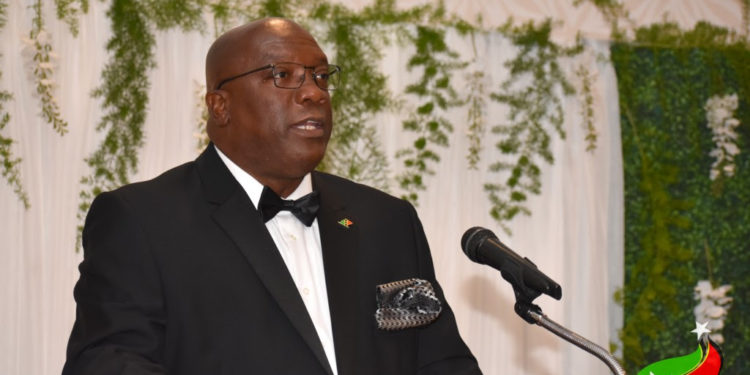Basseterre, St. Kitts, January 23, 2020 (SKNIS): Prime Minister and Minister of Finance, Dr. the Honourable Timothy Harris, during the Sitting of Parliament on Thursday, January 23, introduced the Virtual Assets Bill, 2020, a Bill that will help to facilitate the ease of doing business in a cashless society.
A cashless society is an economic concept where financial transactions are executed in an electronic format rather than using banknotes.
In delivering his address, Prime Minister Harris referred to an attempt to establish a Bitcoin Automated Machine (ATM) in St. Kitts and Nevis in the past and noted that there was no “legislative framework that could properly guide the operation” of such a facility.
“We have now come in this important year of 2020 to ensure that a legislative framework is properly in place to facilitate our engagement in this important industry that is still evolving,” said Prime Minister Harris.
“Mr. Speaker, whether it is the Blockchain, the Bitcoin or Crypto assets or virtual assets, the commonality is the use of financial technology to swiftly transfer value around the world and expedite the advent of what the governor of our central bank has been describing as the cashless society,” said Dr. Harris.
Prime Minister Harris said that this new industry is expected to bring new job opportunities.
“The fast-evolving Blockchain and distributed ledger technologies bring advantages of speed of economy – because it is relatively cheap – ubiquity and anonymity with respect to their use. They bring new job opportunities also,” said Dr. Harris. “As with any other industry, the creation of a new industry will bring and require certain skill sets to accompany and to facilitate that. So, we expect new jobs, and persons who are technologically savvy would have an advantage in this new sector of engagement,” he added.
The Virtual Assets Bill, 2020, which is a Bill to provide for the regulation of Virtual Assets Business from St. Christopher and Nevis and with persons from St. Christopher and Nevis and for related matters, was passed in the Honourable House on Thursday, January 23, 2020.









